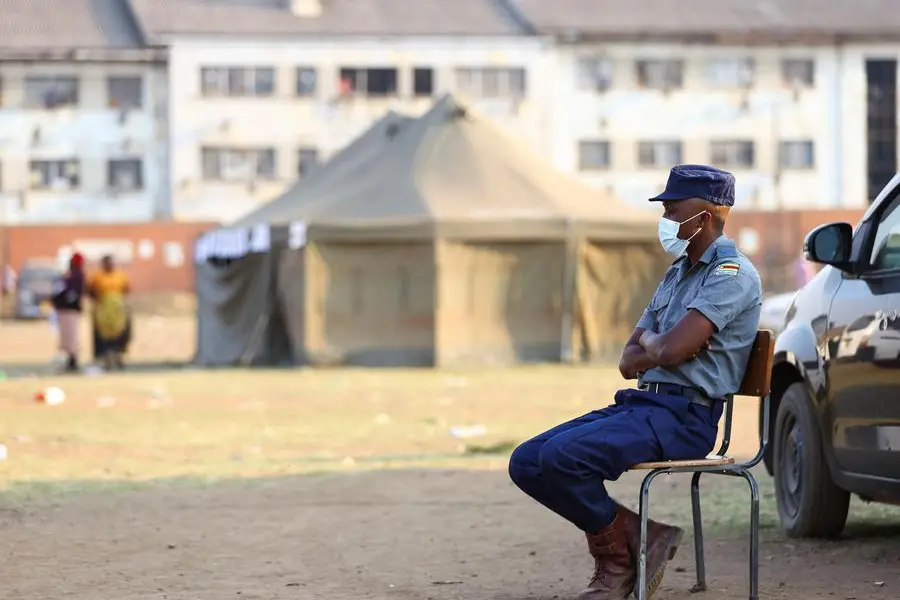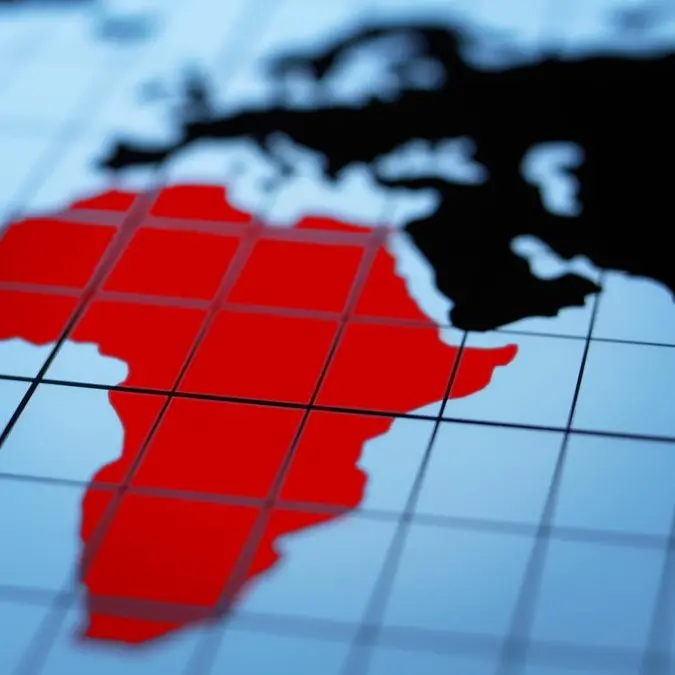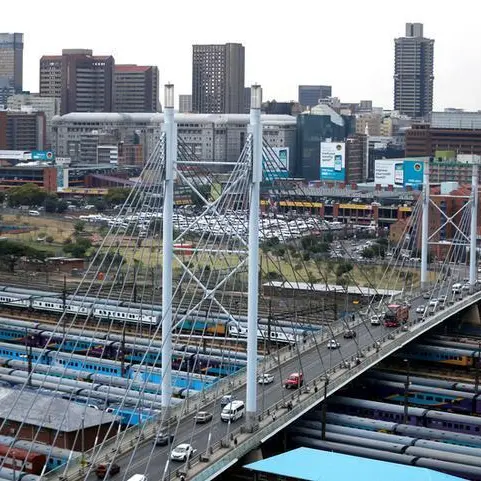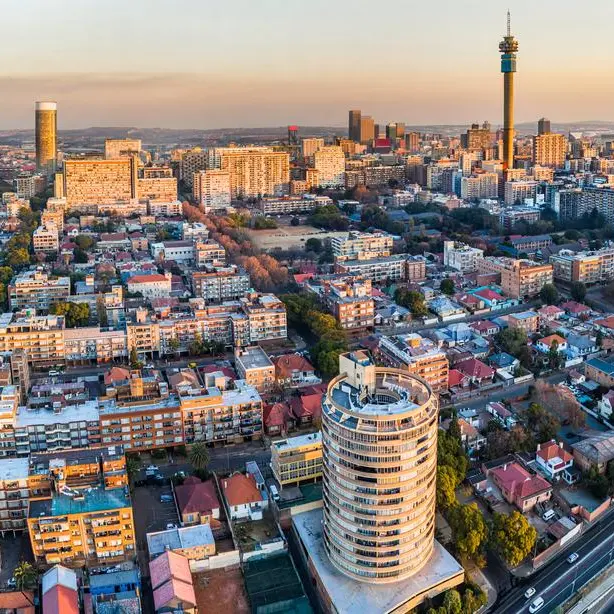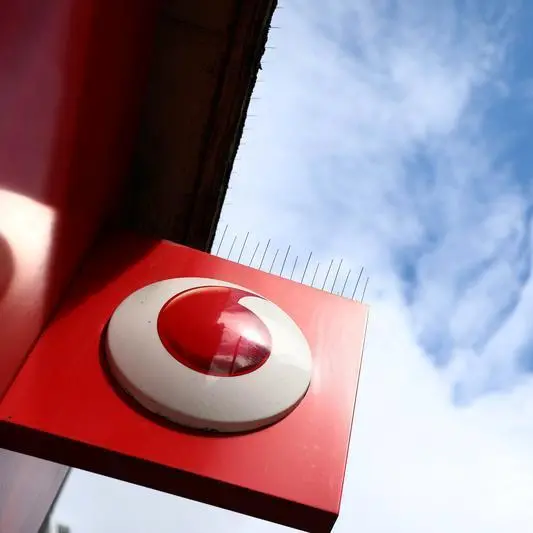PHOTO
The election was usurped by a self-interested ruling party and does not solve the legitimacy crisis or provide a roadmap to save the devastated economy.
The results announced unilaterally on Saturday evening giving President Emmerson Mnangagwa 52.6% of the vote in Zimbabwe’s presidential elections were made possible due to his grip over the judiciary, security agencies and, above all, an Electoral Commission packed with ruling party apparatchiks.
Zimbabwe’s election on 23 August is not going to solve the crisis of legitimacy or our devastated economy. At the core of this is a ruling class driven solely by self-interest.
We have a predatory elite that is stealing everything – our natural resources and public services. Such blatant theft is testing the patience of our youth to breaking point – as we see in other regions of the continent.
The perception that the ZANU-PF regime has won by crookery will persist – not just among Zimbabweans, but by people and governments in the region and beyond.
Reform heist
So glaring was the malfeasance this time – and so obvious the public disapprobation towards the regime – that the usually compliant regional and international observers called out the electoral heist for what it was.
And Zimbabweans will bear the costs for this heist. This stolen election is likely to derail efforts led by the African Development Bank and Mozambique’s former President Joaquim Chissano to win international support for Zimbabwe to restructure its $18bn of foreign debt arrears. That support was premised on governance reforms and holding credible elections.
Stealing the election will prolong the country’s economic degradation, with 175% inflation in June, the destruction of the local currency and the appalling level of unemployment that has forced about a quarter of the population into exile.
How the opposition and civil society react to this blatant violation of the Constitution by the ruling party? Will Nelson Chamisa’s Citizens’ Coalition for Change (CCC) challenge the results in court, knowing the judiciary’s record of favouring ZANU-PF?
Or will they mount mass protests, haunted by the shadow of the elections in 2018 when Mnangagwa and his deputy General Constantino Chiwenga sent in the army to break up a demonstration and soldiers shot six citizens dead on the streets of the capital?
Police presence
This time as Mnangagwa’s “victory” was announced on Saturday, extra police were sent on to the streets of Harare and Bulawayo, both opposition strongholds.
Knives are sharpening inside the ruling party
Much about the mechanics of the 23 August elections was determined months in advance, long before most of the regional and international observers arrived in the country.
The country’s previous election was less than a year after the military coup that removed octogenarian president Robert Mugabe. The coup, led by Mugabe’s erstwhile comrades in ZANU-PF and the army, was launched to prevent the party from losing the 2018 election.
Chiwenga led the charge against residual loyalists to Mugabe in the military and Central Intelligence Organisation, Mnangagwa fled the country to shelter in South Africa until it was safe for him to make a well-orchestrated return to claim the presidency usurped in his name.
Apparently, the deal was that Mnangagwa would serve only one term. He allegedly ripped up that agreement and now he is said to be already thinking about a third.
However, even the stolen results do not give ZANU-PF the two-thirds majority it needs to change the constitution. Insiders say that tensions between Mnangagwa and Chiwenga persist to this day and knives are sharpening inside the ruling party.
Putchist politics
Under a semblance of open-ness, the July 2018 elections were characterised by the tactics that have dogged Zimbabwe’s politics for decades. The army was sent into the countryside to remind voters that the extreme violence meted out to opposition supporters in 2008 could be repeated.
The national broadcaster and the state newspapers were closed to the opposition.
The voters’ roll was withheld from the opposition until a day or so before the election – so it would be uninspected, unaudited and unverified, providing the electoral commission with a potent tool to rig the vote. Zimbabweans in the diaspora were denied the vote.
This cocktail of strategies makes elections unwinnable for opponents and unlosable for incumbents.
Trumped-up charges
The period between 2018 and 2023 has seen an unprecedented use of the criminal justice system against opposition politicians and civil society critics of the government, often on trumped-up charges.
This use of the law against political opponents, like much else in this ZANU-PF regime, copies the tactics of the racist Rhodesian Front regime.
Targets of this strategy are the detained CCC opposition MP Job Sikhala (unconstitutionally denied bail for over a year) and opposition Transform leader Jacob Ngarivhume (sentenced to four years for exercising his constitutional right to protest).
Other political prosecutions include Joana Mamombe, Cecelia Chinembiri and Netsai Marova, prosecuted for protesting the skewed application of Covid-19 regulations. In 2020, nine Mthwakazi Republican Party members were jailed.
Other activists and citizens who protest against or criticise the government have been arrested, unconstitutionally denied bail, and detained in horrific prison conditions, sometimes for months.
Among these are: acclaimed author Tsitsi Dangarembga, arrested for carrying a placard; opposition spokeswoman Fadzai Mahere arrested and wrongly prosecuted for tweeting; journalist Hopewell Chingono, arrested, detained and prosecuted for exposing medical procurement corruption by the former minister of health, Obadiah Moyo and gold smuggling by a relative of the president, Henrietta Rushwaya.
The objective of the law is to both punish the targets and send a chilling message to all Zimbabweans to refrain from criticising and challenging the regime.
Criminalisation of freedom
If the Public Order and Security Act and the Access to Information and Privacy Act hung over the 2018 election like the sword of Damocles, the Criminal Laws Amendment Act (dubbed the Patriotic Act) and the Private Voluntary Organisations (PVO) Bill did the same this year.
They both criminalise opposition to the government.
A court challenge to the constitutionality of the Patriotic Act is pending.
The PVO Act has been passed by parliament and awaits the president’s signature. Its approval by parliament sends a warning to civic activists and restricts their ability to organise, assemble and speak out against the government.
Commission captured
Central to any free, fair, credible and transparent election is an independent, impartial, effective and efficient election management body.
In the past elections, the Zimbabwe Electoral Commission (ZEC) has helped the ruling party. In 2008, it took 45 days to announce the results after Mugabe lost the first round of presidential elections. In 2013, it failed to release the voter’s roll until a day before the election.
Going into the 2023 election, the credibility of ZEC has diminished multiple-fold. The commission has rejected any calls to account to the public for its conduct. Chairwoman Justice Priscilla Chigumba has responded with crass arrogance to any remotely critical question.
This year the commission was divided over its key roles, including its disastrous management of the constituency delimitation. As in the past, ZEC was undermined by security agents infiltrating its operations.
Hands-on ballot
This year, a new shadowy security organisation, Forever Associates Zimbabwe (FAZ), linked to the Central Intelligence Organisation, took over much of the running of the election.
ZEC suppressed the registration of voters in opposition strongholds. Here, FAZ recruits helped distort the voters’ roll by unilaterally adding, removing, duplicating and relocating voters – all benefitting ZANU-PF and damaging the opposition CCC.
Many of these tactics have been exposed by the election monitoring organisation Team Pachedu, which has developed digital tools to counter some of the rigging.
To conceal its manipulation, ZEC withheld the voter register until the last minute, violating the Constitution and the Electoral Act. Denying the opposition access to a searchable voter roll within a reasonable time, ZEC ensured that the ruling party and its allies had control of the primary instrument to manipulate the election.
Another strategy to disenfranchise the opposition was the excessive nomination fees – $20,000 for presidential candidates and $1,000 for parliamentary candidates.
Violence & intimidation
Violence has disfigured Zimbabwean politics dating back to the Rhodesian Front regime. Since our liberation movements – the Zimbabwean African People’s Union and the Zimbabwean African National Union – forced the Rhodesians to negotiate, the violence continued.
After independence in 1980, the ZANU regime under Mugabe and his security minister, Mnangagwa, sent in the Five Brigade against the Ndebele supporters of the opposition ZAPU between 1983 and 1987 encapsulating the 1985 election. The Five Brigade operation would claim up to 20,000 lives in a genocidal massacre.
More election violence followed in 1990 and 2000 culminating in a brutal campaign in 2008 in which ZANU-PF-financed militia killed at least 153 opposition supporters, and maimed and tortured thousands more.
The regime has cut levels of violence in the run-up to the 2023 election, instead focusing on “shaking the matchbox” tactics – reminding people of what happens to those who oppose the ruling party.
Unfair campaign environment
For an election to be deemed free and fair, all parties and candidates should be able to campaign freely, organise rallies and have equal access to the national and state media.
Again this year, all state media showed blatant partisanship towards ZANU-PF. And at least 102 opposition rallies were banned by police and many others were disrupted.
Section 136 of the Electoral Act makes vote buying a criminal offence. Vote buying ranges from giving money or non-financial inducements that undermine free elections.
Vote buying
This year we have seen rampant vote buying in favour of the ruling party. The government has provided unbudgeted loans of $40,000 to all MPs as well as loans of $300,000-$400,000 to government ministers and judges.
Do we really expect a judge who has received a $400,000 low-interest loan from the government to penalise that same government in an electoral ruling? Even without the giveaway loans, the judges have favoured ZANU-PF in most election cases.
The ruling party has used its control of state resources, in particular in the agriculture subsidy scheme, to “buy” the rural vote.
Any one of these advantages would skew the election in favour of the ruling party. Together they obliterated the possibility of a free and fair election before a single vote was cast. The counting, transmission and announcement of the votes by the captured ZEC was the final tactic to determine the results.
Election day manipulation
ZEC is constitutionally tasked with transparently, professionally and impartially preparing and managing the election. On voting day, ZEC must ensure all polling stations are open on time and that all those eligible can vote without intimidation.
ZEC must also allow political parties and candidates to freely observe the voting and counting, and ensure the polling stations are peaceful and free from intimidation.
This year, ZEC saved the worst manipulation for election day. It failed to open polling stations on time in the three main cities – Harare, Bulawayo and Mutare – all opposition strongholds.
In many instances, there were insufficient ballot papers or missing council election ballots. This hampered voting in thousands of polling stations across the country where some voters had arrived as early as 4am.
Due to the fraudulent changes in the voters’ roll, mainly in towns, many voters were turned away because the officials couldn’t find their names on the register.
ZEC had no reliable system to check and inform voters where they should vote. From the day before and throughout the voting day, the *265# mobile system for voters to verify their polling stations was not working. The ZEC online platform for voter inquiries went down many months before.
Hurry up and wait
This deliberate sabotage was yet another form of voter suppression in the cities where the opposition vote was the strongest.
This was more than gross incompetence by ZEC; it was a deliberate strategy to rig the election against the opposition.
Why would the ZEC fail to deliver ballot papers to accessible polling stations in the city, some of them just a few metres from its headquarters? Yet ZEC successfully sent ballot papers to far-flung rural areas which are ZANU-PF strongholds.
By the close of voting day, many in urban opposition strongholds were still trying to vote, some queuing late into the night.
At some polling stations, ZANU-PF or its proxies in the FAZ, set up exit poll desks to audit how people voted – a clear intimidation tactic.
All these abuses will exact a cost – this stolen election will rebound against Zimbabwe’s predatory elite.
Siphosami Malunga is a Zimbabwean constitutional and human rights lawyer who has worked on elections in Africa and globally.
© Copyright The Zimbabwean. All rights reserved. Provided by SyndiGate Media Inc. (Syndigate.info).
